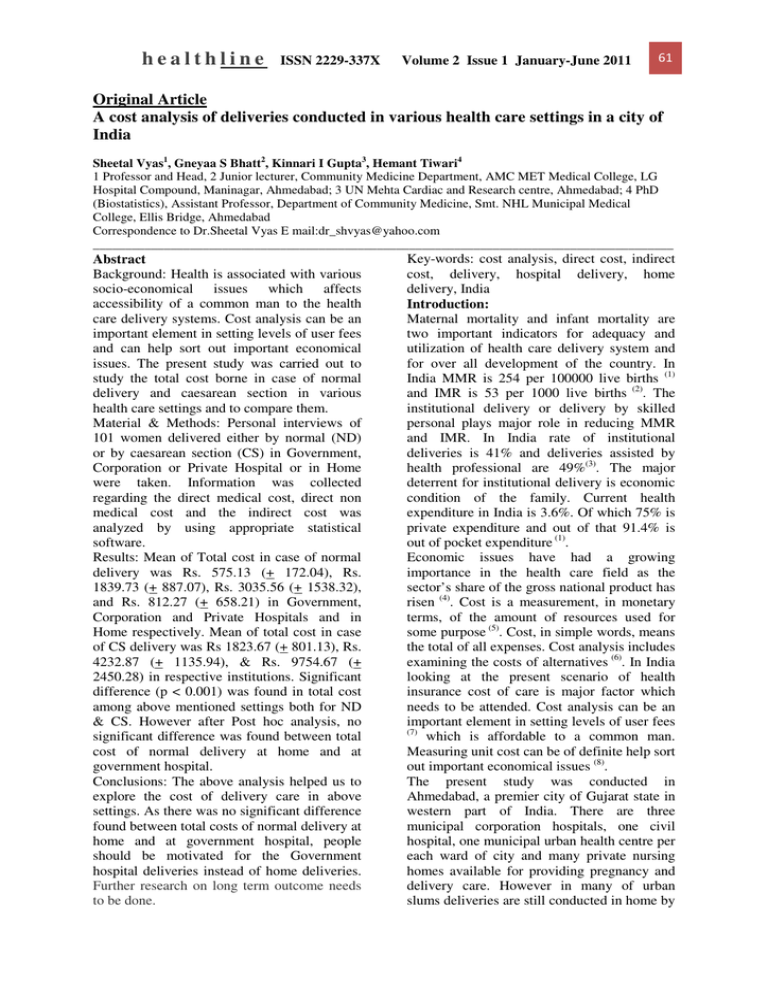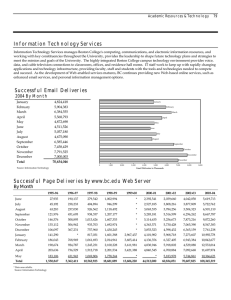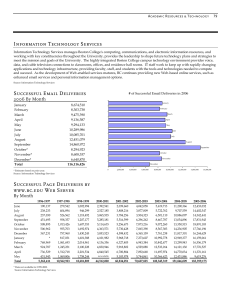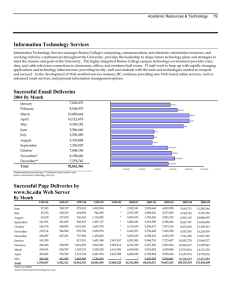A cost analysis of deliveries conducted in various health care
advertisement

healthline ISSN 2229-337X Volume 2 Issue 1 January-June 2011 61 Original Article A cost analysis of deliveries conducted in various health care settings in a city of India Sheetal Vyas1, Gneyaa S Bhatt2, Kinnari I Gupta3, Hemant Tiwari4 1 Professor and Head, 2 Junior lecturer, Community Medicine Department, AMC MET Medical College, LG Hospital Compound, Maninagar, Ahmedabad; 3 UN Mehta Cardiac and Research centre, Ahmedabad; 4 PhD (Biostatistics), Assistant Professor, Department of Community Medicine, Smt. NHL Municipal Medical College, Ellis Bridge, Ahmedabad Correspondence to Dr.Sheetal Vyas E mail:dr_shvyas@yahoo.com __________________________________________________________________________________________ Abstract Background: Health is associated with various socio-economical issues which affects accessibility of a common man to the health care delivery systems. Cost analysis can be an important element in setting levels of user fees and can help sort out important economical issues. The present study was carried out to study the total cost borne in case of normal delivery and caesarean section in various health care settings and to compare them. Material & Methods: Personal interviews of 101 women delivered either by normal (ND) or by caesarean section (CS) in Government, Corporation or Private Hospital or in Home were taken. Information was collected regarding the direct medical cost, direct non medical cost and the indirect cost was analyzed by using appropriate statistical software. Results: Mean of Total cost in case of normal delivery was Rs. 575.13 (+ 172.04), Rs. 1839.73 (+ 887.07), Rs. 3035.56 (+ 1538.32), and Rs. 812.27 (+ 658.21) in Government, Corporation and Private Hospitals and in Home respectively. Mean of total cost in case of CS delivery was Rs 1823.67 (+ 801.13), Rs. 4232.87 (+ 1135.94), & Rs. 9754.67 (+ 2450.28) in respective institutions. Significant difference (p < 0.001) was found in total cost among above mentioned settings both for ND & CS. However after Post hoc analysis, no significant difference was found between total cost of normal delivery at home and at government hospital. Conclusions: The above analysis helped us to explore the cost of delivery care in above settings. As there was no significant difference found between total costs of normal delivery at home and at government hospital, people should be motivated for the Government hospital deliveries instead of home deliveries. Further research on long term outcome needs to be done. Key-words: cost analysis, direct cost, indirect cost, delivery, hospital delivery, home delivery, India Introduction: Maternal mortality and infant mortality are two important indicators for adequacy and utilization of health care delivery system and for over all development of the country. In India MMR is 254 per 100000 live births (1) and IMR is 53 per 1000 live births (2). The institutional delivery or delivery by skilled personal plays major role in reducing MMR and IMR. In India rate of institutional deliveries is 41% and deliveries assisted by health professional are 49%(3). The major deterrent for institutional delivery is economic condition of the family. Current health expenditure in India is 3.6%. Of which 75% is private expenditure and out of that 91.4% is out of pocket expenditure (1). Economic issues have had a growing importance in the health care field as the sector’s share of the gross national product has risen (4). Cost is a measurement, in monetary terms, of the amount of resources used for some purpose (5). Cost, in simple words, means the total of all expenses. Cost analysis includes examining the costs of alternatives (6). In India looking at the present scenario of health insurance cost of care is major factor which needs to be attended. Cost analysis can be an important element in setting levels of user fees (7) which is affordable to a common man. Measuring unit cost can be of definite help sort out important economical issues (8). The present study was conducted in Ahmedabad, a premier city of Gujarat state in western part of India. There are three municipal corporation hospitals, one civil hospital, one municipal urban health centre per each ward of city and many private nursing homes available for providing pregnancy and delivery care. However in many of urban slums deliveries are still conducted in home by healthline ISSN 2229-337X untrained elderly females of the locality. The present study was carried out to analyse out of pocket expenditure incurred for child birth in various settings and to assess whether cost of health care services is a significant factor in choice of the setting for delivery care. Methods: It was a Cross sectional study carried out in various health care settings of Ahmedabad city during September- October 2008. For data collection following settings were chosen: Civil hospital, one of the municipal corporation hospitals, purposively selected three private hospitals and two of urban slum areas (Gulbai Tekra and Kagdivad area). The private hospitals were chosen based on the results of survey conducted in the mentioned slum areas regarding the favourable private hospitals for the local population. 30 cases from each of the health care settings (15 of normal delivery and 15 of Caesarean section delivery) based on experience of getting similar replies after such a number of interviews. And 11 cases of home delivery could be taken out of around 13 cases occurred at home in last 2 months preceding the interview with live issue in study area to limit recall bias. The women having any complication during or after pregnancy or delivery were excluded. The women registered under Janani Suraksha Yojana (9) or Chiranjeevi Yojana (10) (schemes by Government to increase institutional deliveries) were also excluded. Total 56 cases of normal delivery with or without episiotomy and 45 cases of cesarean section were taken. After obtaining oral consent total 101 women and/or care taker in these settings were personally interviewed by the investigators. For the hospital setting the interviews were taken every day till the women got discharge. Information was collected regarding Direct Medical Cost, Direct Non Medical Cost and Indirect cost. Terms: Direct Medical Cost includes: cost of medicines and consumables, hospital bill i.e. Cot charges, charges of Investigations, Operation Theatre charge if any, Charge of Anesthesia if any and charge of Caesarian section if any, Dai charges in case of home delivery Volume 2 Issue 1 January-June 2011 62 Direct Non Medical Cost includes: cost of food, cost of accommodation for attendants, cost of transport Indirect cost includes: wage loss of self and/or care taker Statistical Analysis was done by calculating averages, proportions and applying test of significance using appropriate statistical software. Results: Mean age of the women in the study was 23.3+3.22 years. Socio economic status of women showed 90 % of women fell below class 3 of Modified Prasad. Mean duration of Hospital stay was 2.2 +1.99 days and 7.9+ 4.41 days in ND and in CS respectively. Average of total cost is in case of Normal Delivery is highest for private hospital while lowest for government hospital (Table 1). The difference was found to be significant (KW= 41.37, p<o.ooo1) in total cost among above mentioned settings for ND. However on Posthoc analysis no difference was found between mean cost of ND at Government hospital Vs Home delivery. Average of total cost is in case of Caesarean Section Delivery is highest for private hospital while lowest for government hospital (Table 2) and the difference in total cost was found to be significant (KW= 37.65, p<o.ooo1) among above mentioned settings for CS and on Posthoc analysis also the difference between each setting was found significant. Direct medical cost contributes the most to the total cost in case of normal delivery in each setting except in government hospital where direct non medical cost contributes highest (figure 1). However in case of CS direct medical cost contributes the most to the total cost in all the institutions (figure 2). In both the cases it is lowest at the government hospital. When expenditure for child birth is calculated as a percentage of total monthly income, average expenditure for ND was found to be 38.61% and that for CS it was 116.56%. Maximum percentage of income was spent in case of private hospital delivery and lowest for government hospital for both ND and CS (figure 3). Even 21% of family had to take debt to meet the expenses of delivery. Of which 64% had CS delivery, 18% had home delivery and rest 18% had normal delivery. healthline ISSN 2229-337X Table 1 Each type of cost in case of Normal Delivery in each setting Direct NonMedical Cost (Rs.) Direct Medical Cost (Rs.) Indirect Cost (Rs.) Total Cost (Rs.) Go ver nm ent Corpor ation Mean 269 208.8 240 .45 0 SD 91. 03 140.3 120 .83 0 Mean 143 .13 1485.0 7 280 2.1 Home Direct NonMedic al Cost (Rs.) Governme nt Corporati on Private Mean 488.67 369.67 254.46 SD 231.36 98.18 92.34 Mean 824.66 3621.07 9297.6 5 SD 228.11 989.81 2543.2 4 Mean 523.73 242.13 270.56 697.73 Direct Medic al Cost (Rs.) 160 .65 114.55 112.94 124 .23 147.53 SD 493.68 412.01 116.32 1839.7 3 320 3.2 5 812.27 Mean 1823.67 4232.87 9822.7 3 SD 801.13 1135.94 2622.6 3 Media n 1540 4125 9500 Range 1070-4050 24815880 568014660 170 .67 145.8 SD 89. 48 Mean 575 .13 101 2.3 4 658.21 1510 298 0 940 8683675 210 0600 0 1002300 172 .04 887.07 Median 665 Range 345 905 SD Table 2 Each type of cost in case of Caesarean Section Delivery in each setting 620.73 740.54 Mean 63 121 4.2 4 152 .01 SD Priv ate Volume 2 Issue 1 January-June 2011 Figure 1 Contribution from each type of the cost to the Total Cost in Normal Delivery Indirec t cost (Rs.) Total Cost (Rs.) Figure 2 Contribution from each type of the cost to the Total Cost in Caesarian Section Delivery healthline ISSN 2229-337X Figure 3 Percentage of Total Monthly Income spent for Delivery Discussion: In the present study the differences in average total expenditure in case of ND as well as CS in Government, Corporation and Private Hospitals and in Home (for ND only) were found significant. This difference is mainly because of difference in the direct medical cost in these settings. In civil hospital it is only that of medicines and consumables and no cost of hospital bill to the patients. Even the charges taken by personal in home delivery either in cash or in most cases in kind were higher than the cost in government hospital. In case of CS delivery direct non medical and indirect cost were higher in government hospital that may be because duration of stay was more in these cases. It was seen that quite a big share of monthly income was spent for child birth especially in corporation and private institutions. In case of CS delivery it even exceeded 100%. One fifth of the family were compelled to take debt to overcome the expenditure. It shows that giving birth which is a physiological condition puts heavy toll on a common man. There needs to be a mechanism which can make a common man free of stress and strain of spending over and above his capacity. However centrally sponsored Janani Suraksha Yojna (9) and Chiranjeevi Yojana (10) of Gujarat state are the examples of work done in these areas. Still many challenges remain looking to the occurrence of home deliveries in urban slums of such a premier city. Studies to know the reasons for such behaviour of women/ family who still prefer to deliver at home in spite of less financial burden in the government and the perks given by the government schemes. As there was no Volume 2 Issue 1 January-June 2011 64 significant difference found between total costs of ND at home and at government hospital, people should be motivated for the Government hospital deliveries. Major proportion of total cost was of Direct Medical cost & of that major proportion was of medicines so if they can be provided at subsidized rate than this component can be taken care of. The costs of delivery are far beyond the limits of lower class & an average middle class family in corporation & private hospitals and such important issue is to be addressed as a part of health economics. Here, one aspect, which could not be explored in detail, is the differential in expenditure on home deliveries by type of attendance during the delivery. We also could not study the long term outcome with various health care settings. Monitoring of maternal and neonatal morbidities and mortality needs to be done so that it is possible to assess the impact of the program much more rigorously. References: 1. National Health Profile of India 2009. Available from: http://www.cbhidghs.nic.in/ Accessed on 10 July, 2010 2. SRS bulletin October 2009, Volume 44 No. 1. 3. Key Indicators for India from NFHS 3. Available from: http://www.nfhsindia.org/factsheet.html. Accessed on 10 July, 2010 4. Michael Drummond, Greg Studdart, Roberta Labelle, Robert Cushman. Health Economics: An Intoduction for Clinicians. Annals of Internal Medicine. 1987; 107: 88-92 5. Joel G. Siegel, Jae K. Shim. Management/ Cost Accounting I. In: Barron’s Accounting Handbook. 4th ed. Barron’s Educational Series, 2006: 89 6. How to read clinical journals: VII. To understand an economic evaluation (part A). Can Med Assoc J, Vol.130, June 1, 1984 7. Shepard D et al. Cost Effectiveness of Ambulatory Surgery in Columbia Health Policy and Planning. A Procedure for Projecting Hospital Recurring Cost, 8(2); 136-142. 8. Ma McMC Guire & McGuire. Analysis of Hospital Costs: A Manual for Managers. Institute for Health Policy, Heller Graduate School, Bradels University, USA. 9. Janani Suraksha Yojana. Available from: http://www.mohfw.nic.in/janani__suraksha__yo jana.htm Accessed on 12 July, 2010 10. Chiranjeevi Yojana. Avaialble from: www.gujhealth.gov.in/Chiranjeevi%20Yojana /M_index.htm Accessed on 12 July, 2010



